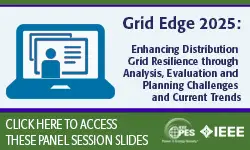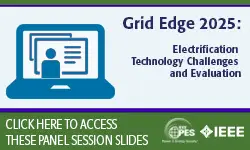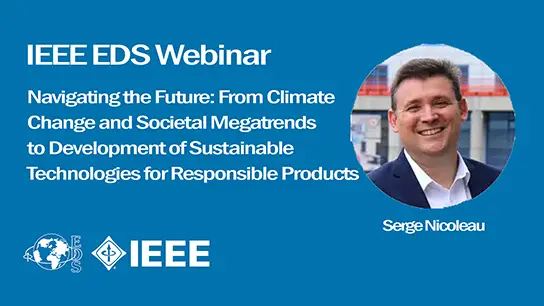Enabling Climate Adaptation and Mitigation Through Grid Modernization (TR124)
Robert Jeffers (Chair), Daniel Kushner (Vice-Chair), Elli Ntakou, Aleksi Paaso, Babu Chalamala, Bénédicte Jourdier, Farnoosh Rahmatian, Mahmoud Fotuhu-Firuzabad, Erick Jones Jr., Juan Carlos Araneda Tapia, Akintonde Abbas, Toby Price
-
Members: FreePES
IEEE Members: $45.00
Non-members: $70.00Pages/Slides: 34
The future electric grid must meet many requirements to successfully adapt to and mitigate the impacts of climate change. Changing societal needs are changing the demands on the grid, including the decarbonization of the electricity supply integrating renewable resources and retiring fossil-fire plants, as well as increased electrification of fossil fuel applications such as supporting electric vehicle charging, and the changing use of space and water heating and cooling capabilities. As the grid becomes even more essential for basic human needs, society will also need higher levels of grid reliability and resilience. In much of the academic and policy discourse, there is an effort to define actions for both mitigating and adapting to the realities of climate change. This document incorporates that discourse to support practitioners, reflecting the emerging consensus that for the electricity sector, neither is possible without the other. An electricity sector focused only on reducing its carbon intensity in support of climate mitigation goals ultimately cannot provide benefit if the communities that rely upon it cannot operate under extreme environmental conditions driven by climate change. Conversely, the electricity sector will face exponentially increasing adaptation challenges if it does not also decarbonize, thereby slowing the progression of climate change. These challenges will affect both generation resources, such as when smoke from wildfires exacerbated by climate change limits solar irradiation, as well as a grid that is required to support the increased needs of communities under harsher weather conditions. Policy makers, regulators, and industry are pursuing these goals within an evolving policy framework that is focused on the adoption of clean energy technologies, engagement with communities, and increasing positive impacts, particularly on vulnerable communities. Executing these objectives entails rigorous attention to technical foundations including:
- Identifying and evaluating potential extreme conditions;
- Determining reliability and resilience targets that must be adjusted due to climate change;
- Development and analysis of potential solutions to challenges;
- Planning a more reliable and resilient grid;
- Mitigating cascading outages; and
- Accelerating the restoration from wide-scale outages.
Accomplishing this will not only support the adoption of foundational and advanced energy technologies, but also enable communities to continue functioning in the face of both chronic stresses (such as more high-heat and humidity days) and acute shocks (such as hurricanes or extreme cold events that are exacerbated with climate change). This will significantly impact to the economy, public health, and societies in which we live. This technical report, prepared by the climate change task force of the IEEE PES Industry Technical Support Leadership Committee (ITS-LC), identifies efforts of the power sector to ensure that the emerging grid can adapt to environmental conditions resulting from climate change, while also responding to emerging needs for decarbonization and climate mitigation. Building upon the research and analysis done by the members of the IEEE PES, it elaborates on the need for advanced technologies to meet the challenges that face our sector and those it serves.


